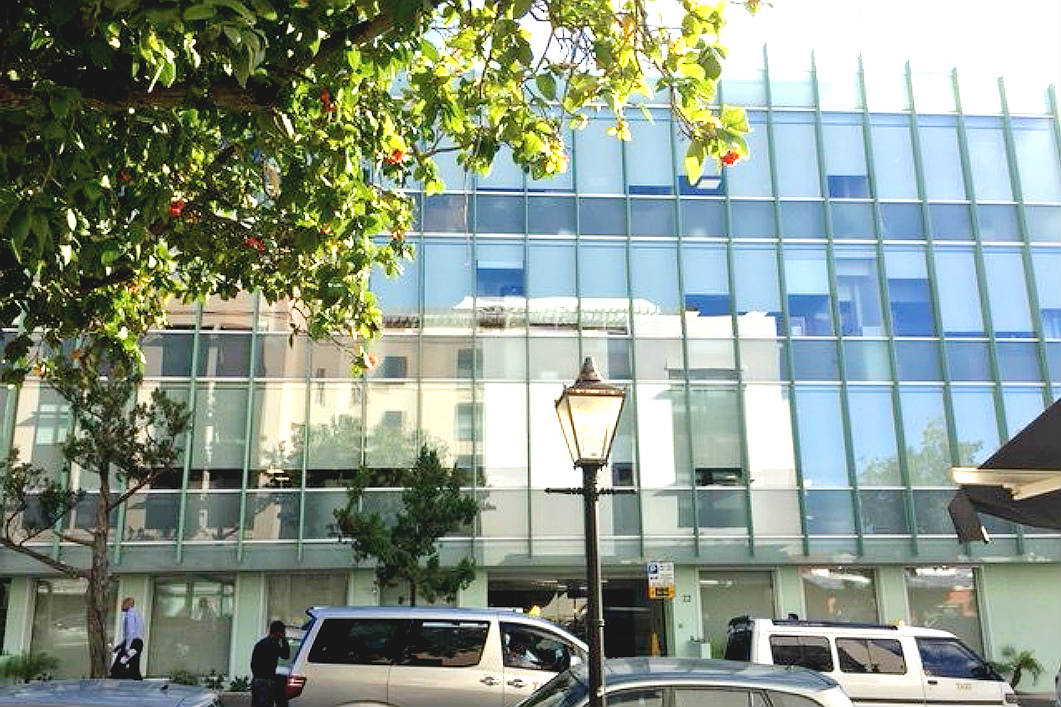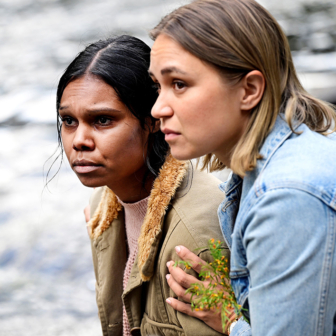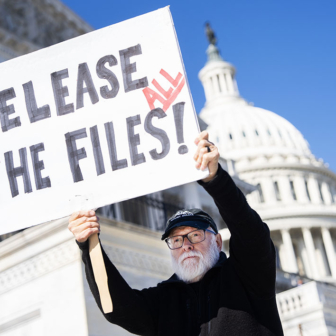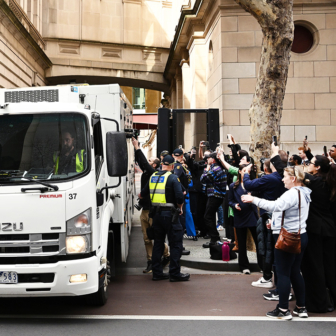At around 5am Sydney time yesterday, a coordinated news story began to roll out across major media outlets around the globe. By the time most Australians were starting their day, the hashtag #ParadisePapers was running hot, with links to a plethora of news outlets. The BBC, the Guardian, the New York Times and Germany’s Süddeutsche Zeitung led the way, but the release was syndicated through over a hundred media partners whose journalists participated in the investigation. The Australian Financial Review and the ABC’s Four Corners were the main players in the Australian contingent.
Through the course of the day, the Paradise Papers didn’t quite manage to steal the headlines from the parliamentary citizenship saga. For many of us, there is something rather esoteric about the world of high finance, and the story of trillions of dollars being funnelled through Bermuda can seem both preposterous and remote. That north-Atlantic island, as its former finance minister Bob Richards was happy to confirm in an interview with Marian Wilkinson for Four Corners, has a tax rate of zero.
The Guardian ran a live news link, providing key information on the major angles of the investigation. But effective television coverage is critical if stories like this are to get any traction in the public imagination. Well-paced editing has the capacity to take the audience almost effortlessly through complex arrangements and multiple locations. In a few minutes, Four Corners viewers went from the idyllic seafront at sunset in Bermuda — where cash flows are cordoned off from the tax claims of other governments, and then used to influence their policies — to Parliament Hill in Ottawa, the US Capitol in Washington, and the Kremlin.
It’s easy for television to feed in some of the backstory without losing the immediacy of the breaking news. We can flash back, for example, to billionaire Wilbur Ross, Donald Trump’s commerce secretary, being questioned at his nomination hearing by Democratic senator Elizabeth Warren about his dealings with a corporation run by members of Vladimir Putin’s inner circle. Inner circles in Washington and Moscow have ways of intersecting through Bermuda. Companies in the US alone acknowledge having earned over $100 billion in profits in Bermuda — a sum roughly eighteen times the size of the island’s entire economy. You can read a statement like that and baulk; as voiceover, its impact is all the greater.
The explanatory work of documentary is vital, but just as important is the challenge of conveying the significance of the practices being exposed. Ordinary human beings have been exploited by the rich and powerful from time immemorial. Unless it affects us in a direct and visible way, it’s easy to shrug it off as one of the enduring realities of life. A leak of thirteen million documents exposing shady goings-on in Bermuda may be an important matter, but do we care enough to push hard enough to stir reluctant governments into action?
Judging by the response of high-school students who were invited to comment afterwards as guest panellists on Q&A, the Four Corners report stirred up a good deal of indignation. It was “unacceptable” and “absolutely wrong.” We’re missing out on funding that should go to health, education, defence. Everyone should pay their fair share. You can’t have one law for the rich and another for everyone else. One student wanted to focus more sharply on the need to distinguish between tax evasion and tax avoidance: what forms does the distinction take?
The students were vibrant, articulate, lucid — considerably more so, one might say, than the average set of panellists on Q&A — but the limitations of their perspective show where the work of communication needs to be done. This is about so much more than “being fair.” It’s about the manipulation of governments and, in turn, their manipulation of how electorates understand the economy. I wonder how Scott Morrison would have fared on that panel if he had trotted out the trickle-down dictum that remains the linchpin of the Turnbull government’s economic vision. The cheating is not just financial, it is also cognitive.
And feel-good generalisations about the need to support health, education and public services don’t get at the urgency of a situation in which public services are breaking down, the health system is failing and disabled people are being left without benefits. All this is already happening in Britain, and we’re heading along the same policy route in Australia.
On Sunday night, the BBC’s Four Corners counterpart, Panorama, focused on the case of Lord Ashcroft, former deputy chairman of the Conservative Party and a major donor to the party. Ashcroft funnelled money through trusts that acted as tax shelters; the Paradise Papers suggest that he was playing the system, involving himself in decisions made by the trusts regarding the disposition of their assets. Nicholas Shaxson, author of Treasure Islands: Tax Havens and the Men Who Stole the World, described it as “an abusive structure.” Ashcroft is seen on camera, trying to escape the Panorama crew at the Conservative Party Conference, saying, “Dear, dear, dear, dear, dear.”
Ashcroft is also a donor to the Liberal Party of Australia — the Guardian published a photo of him chatting with Malcolm Turnbull in the prime minister’s office earlier this year — but he didn’t appear in the Four Corners report. This highlights the choices made in the treatment of any story with multiple angles, and the question of how and why they are made. The Ashcroft case shows how the interests of the super-rich have become embedded in party politics and been able to control government policy, a matter that needs to be front and centre in the minds of the electorate. The “fair share” argument seems weak in comparison.
Capturing the viewer’s attention is an important goal, but there’s also a need to get at the critical issues at stake, and I’m not sure Four Corners got the balance right. They chose to devote a lot of time to the case of the musician Michael Hutchence, whose legacy was sequestered by an executor working through offshore agencies. The family has seen almost nothing of it: a bad situation, but one that doesn’t really illustrate the critical concerns arising from the Paradise Papers. In this context, it was a distraction.
The real story in this leak isn’t about damage done to individuals, serious as it can be, but about the behaviour of a large corporation like Glencore, touched on by Four Corners, which can mine Australian assets, reap the profits and avoid returning anything to the common wealth of the nation. More time might have been devoted to this case, and its implications. It’s about how the dispossession of the citizenry has become an article of faith in a certain political ideology heavily promoted by its few beneficiaries.
There is a clear upside to the story, though, and Four Corners is part of it. In the words of the head of the International Consortium of Investigative Journalists, Gerard Ryle, Paradise Papers is “the biggest leak in history.” The Süddeutsche Zeitung, as the original recipient of the material, reached out through Ryle’s organisation to media organisations around the world, who mined the data for local angles. Using the reporting of the Panama Papers as a template, that modus operandi is a massive breakthrough for the fourth estate at a point when the freedom and impartiality of the press has seemed to be in terminal decline. ⦁




